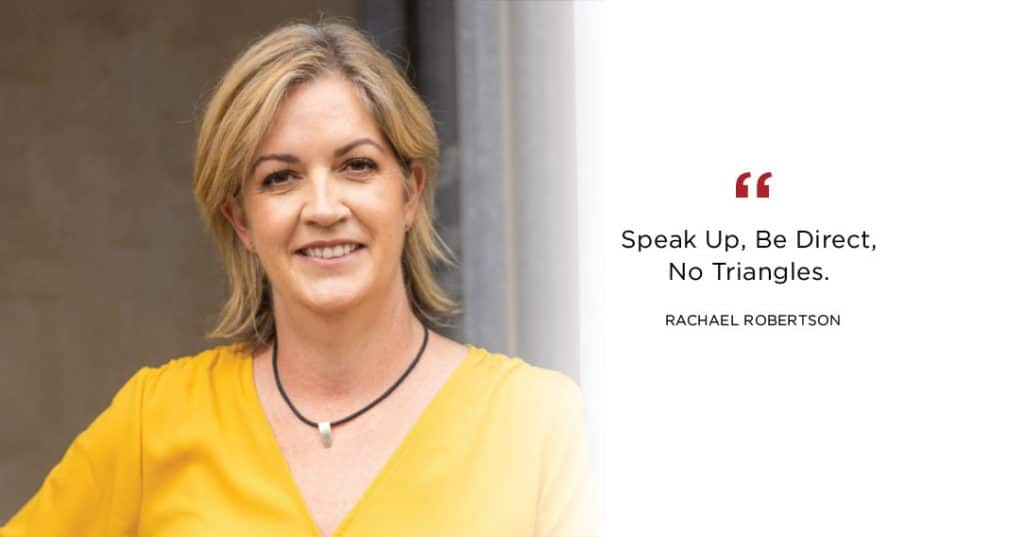Build a workplace culture of ‘No Triangles’ | Rachael Robertson | Health & Safety Speaker

Rachael Robertson successfully shaped a resilient, safe and successful team in the most remote and dangerous workplace known to humankind, Antarctica. Rachael has over 20 years leadership experience in challenging and remote workplaces. We asked Rachael Robertson if she had a room full of people and could teach them one skill; what would it be? This is what the Health & Safety Speaker shared with us.
No Triangles? Let me explain…
The ability to break down triangles and have direct (and at times confrontational) conversations is the only way to keep a team safe. A culture of ‘No Triangles’ and a strong belief that ‘respect trumps harmony’ was the foundation for success for my team of highly diverse people in Antarctica. No Triangles is the practise of only having direct conversations. It’s a simple rule that means ‘I don’t speak to you about him, or you don’t speak to me about her.’ No Triangles; go direct to the source. So the life skill I would teach is the ability to have open, direct conversations.
Why is ‘no triangles’ important?
The culture and practices of direct conversations builds respect in a team. It’s a powerful tool that reduces conflict and clarifies accountability. The practise of No Triangles also ensures your time is spent dealing with issues that matter. Those that have the most impact on safety, performance and outcomes, not handling personal disputes that simply burn energy. It also shuts down “answer shopping”, people who keep asking the same question and go over people’s heads, or around people, until they get the answer they want.
Triangles and Safety
In my 20 years experience working in remote and inherently dangerous workplaces I have realised that incidents and accidents are rarely caused by catastrophic failure – we usually have the expertise and experience in place to avoid this. Rather, the vast majority of incidents are caused by a single simple, or chain of simple, factors – often it’s a fleeting decision made by someone. Quite often when we review the incident it’s found that a short-cut was taken, or a work-around was implemented, because an existing policy or procedure was ineffective, too laborious, clunky, misunderstood, or simply conflicted with another priority such as output and performance. People know about it, complain to colleagues about it, create triangle conversations with each other about it, but don’t do the one thing that could change it – have a direct, open conversation.
Speak up. Be direct. No Triangles.